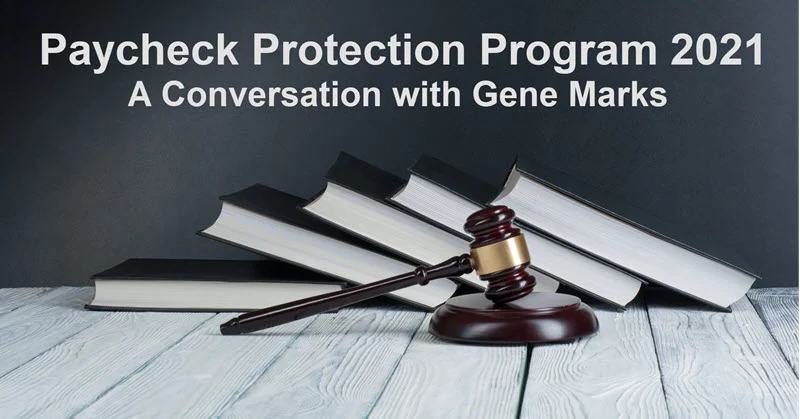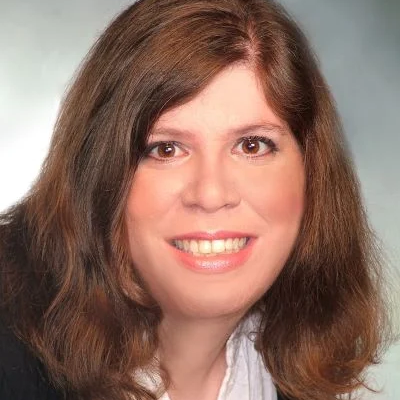Joining us today is Gene Marks from the Marks Group PC. He is an author, a speaker on small business expertise, and a CPA. He has presented at Scaling New Heights. He was one of our guests on the Round Tables back in March for the CARES Act when we were trying to figure out what was happening with coronavirus relief. He writes regularly for The Hill, the Philadelphia Inquirer, Forbes, Entrepreneur Magazine, and The Guardian, and appears regularly on MSNBC, CNBC, Fox Business and Fox News. He’s the author of six books on business management and comes to us today compliments of our friends at Patriot Software, a leading payroll provider which works with QuickBooks Integrated Payroll.
Joe Woodard: So can you talk to me a little bit about the sole proprietorship Schedule C? What are the allowances for contracted resources, if any, under the PPP?
Gene Marks: I know a lot of sole proprietors and independent contractors who think that they're ineligible for the PPP. Schedule C filers are absolutely eligible for PPP loans. Whatever you paid yourself, you can use as the basis for a PPP loan, whether it’s a first-time or even a second round. Also you now have federal unemployment benefits. You can now get $300 a week now in addition to your state unemployment. Sole proprietors and independent contractors are to be allowed to apply for unemployment. These provisions have also been extended. Maybe that's a better route for you than applying for PPP, but both of those options are open to you and you should consider taking one or the other.
Joe Woodard: What about the timing? When can we start applying?
Gene Marks: So the SP was added 10 days from the signing of this bill, which was like Christmas. I don't think they're going to meet that deadline. I was having a lengthy conversation with a couple of bankers who are giving out these PPP loans. They don't have the clarified rules either, but I do expect that the clarifying documentation will be available a lot sooner than it was the first time around. This is the third time around. So the industry caught up. It's imminent. I would say it will be available within the next two weeks.
My advice to you is to reach out if you want a PPP loan. Reach out to an SBA lender. Go to the SBA website and you can find a lender near you. It doesn't have to be a bank. There are a lot of approved lenders, such as online lenders as well. They should all be ready to go, in, I believe, the next couple of weeks.
Joe Woodard: I'm interested in your thoughts on this, Gene: We found in Phase 1 that the major banks were playing a good old boys system with their largest accounts. The PPP loans that had the million dollar plus price tags were the ones getting prioritized. Of course, their rates were greater and a lot of folks in the small business community were getting left behind. So I don't know if the big banks are going to compensate for that. Gene, I'd love to know if you have any read on that.
Woodard tried, through its normal banking relationships with Bank of America, to get the PPP and failed. Then we went to SmartBiz Loans and they had us linked with a community bank out of South Carolina that we'd never heard of before. And we had our loan within just a week or two. So let SmartBiz Loans advocate for you. But here's the thing. Right now they're overwhelmed and and trying to get attention. It's going to be tough. You're going to be at the end of a very long list.
We're trying to empower small business advisors to transform small business over here. Gene, tell us a what you think the banks have learned from their mistakes. Is there any oversight? Is Congress holding their feet to the fire to take care of the little guys better? What's happening?
Gene Marks: So there's a few things to bear in mind. First of all, yes, I do think the banks did learn a lesson from the first time around. I think they're more prepared for this right now. I think a lot of the community banks, and the smaller banks as well, have stepped up to the plate. I was reading a study by the American Bankers Association. Thanks to the PPP, community and smaller banks and independent banks have tripled their investments online. It really pushed a lot of small businesses around the country to pivot and sell more online. And it really made a big difference.
I do think that banks have come around. I also think that the changes to the forgiveness of these loans are going to make things a lot easier for the banks to get all of this through what they need to get done. I think you're going to see a far more business-friendly attitude when it comes to banks lending out.
As I mentioned earlier, grants are going out. The SBA has been given a lot of money for overseeing the banks, but also to educate, to set aside for minority businesses $15 billion for for initial PPP loans and another $25 billion for second PPP loans for businesses with 10 or fewer employees that are in low- or moderate-income areas. So if you've got any clients or work with any minority-owned businesses, there's money that's available for them. And then the SBA put aside another $30 billion as part of this program to give SBA microloans to Community Development Financial Institutions (CDFI) and minority depository institutions, so they're really trying to funnel money out to minority owned businesses because those minorities received such a small share of the loans that went out last time.
So if you have clients that are out there, get the word out that these banks have been told that the SBA set aside money to lend to these people. We have to do our best to help people realize that there's money available for them.
Joe Woodard: As far as the demographic qualifier, it still has to be in one of those low to moderate income areas, you said that there's a listing of those areas or some sort of a map on the SBA website.
Gene Marks: There is. The best thing that you can do is to ask your lender because it’s going to have the real up to date information about what's a low or moderate income area in your area. And that is really important because even if you are a minority owned business and you're not located in one of those areas, you won't be eligible for some of these benefits.
Joe Woodard: What about veteran-owned businesses? Anything special?
Gene Marks: Veteran-owned businesses are still able to get the loans. So they're certainly eligible, but nothing special. They're not considered to be minorities as far as I'm aware.
.png?width=150&height=63&name=TWRlogo-regmark_blueblack%20(1).png)
.png)










Do you have questions about this article? Email us and let us know > info@woodard.com
Comments: